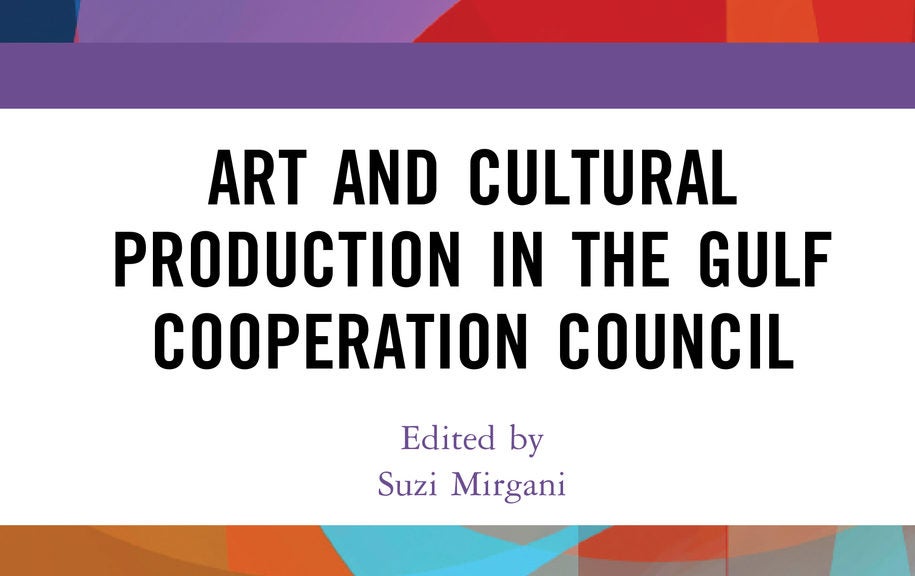CIRS new book explores art and cultural production in the Gulf

Global news headlines have been buzzing with commentary regarding the state of art and cultural production in the Gulf societies, and Georgetown University in Qatar’s (GU-Q) Center for International and Regional Studies (CIRS) recently published a new book titled Art and Cultural Production in the Gulf Cooperation Council, which offers a comprehensive and multi-disciplinary study about these evolving fields.
Edited by GU-Q’s Dr. Suzi Mirgani, the book is the result of a multi-year collaborative CIRS research initiative featuring a number of scholars from around the world who engaged in in-depth scholarly investigations of art and cultural production in the region. “State-driven investments in art and cultural production in the GCC form an important part of the search for alternatives to the unsustainability of a hydrocarbon-based economic future,” said Dr. Suzi Mirgani, Managing Editor at CIRS. “This volume offers multi-disciplinary analyses and original studies on the Gulf’s emerging cultural industries, museology, and art activities.”
The book highlights issues of importance to Gulf societies, including cultural appropriation, identity formation, the emerging museology, aesthetics of censorship and circumvention, the question of authenticity, contemporary art and engagements with migrant labor communities, as well as reflections on the phenomenon of public art in the Gulf.
Art and Cultural Production in the Gulf Cooperation Council is one in a series of books published by CIRS in partnership with renowned publishing houses, such as Routledge, Oxford University Press, Cornell University Press, Columbia University Press, and Hurst. It follows from Digital Middle East: State and Society in the Information Age, and The Red Star and the Crescent: China and the Middle East, both published in 2018.
Established in 2005, CIRS is devoted to the academic study of regional and international issues through dialogue and exchange of ideas, research and scholarship, and engagement with national and international scholars, opinion-makers, practitioners, and activists.